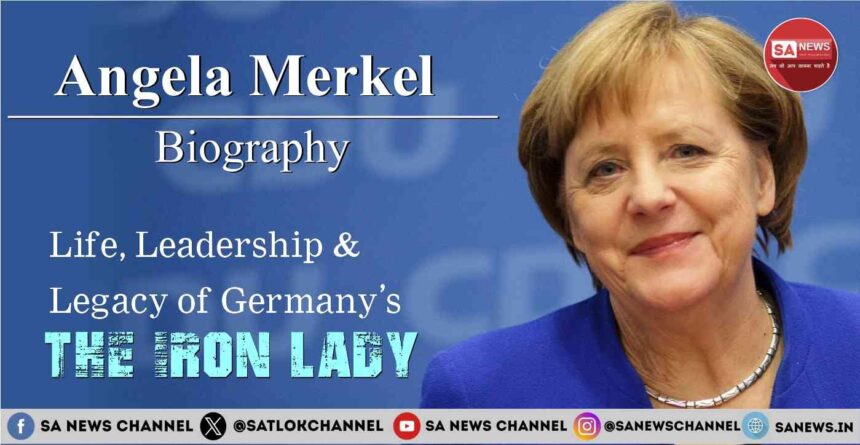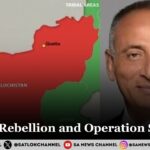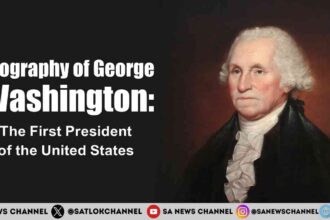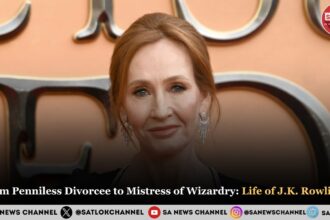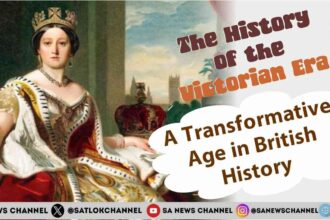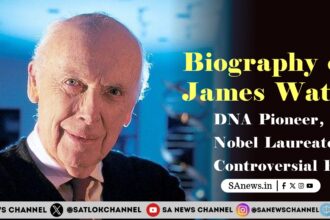Angela Merkel is a German politician and former research scientist. She served Germany as Chancellor from 2005 to 2021. She is renowned for her pragmatic leadership style, calm demeanor, and dedication to democratic values. Angela Merkel held the highest political office in Germany and is celebrated as one of the most influential leaders of the 21st century.
- Overview of Her Political Career
- Why is she a Global Icon?
- Early Life and Education
- Childhood and Family Background
- Academic Journey and Scientific Training
- Transition from Science to Politics
- Political Rise in Germany
- Entry into Politics After the Fall of the Berlin Wall
- Early Roles in the CDU (Christian Democratic Union)
- Becoming Germany’s First Female Chancellor
- Tenure as Chancellor of Germany
- Major Domestic Policies and Reforms
- Leadership During the Eurozone Crisis
- Merkel’s Handling of the Migration Crisis
- Merkel’s Role in EU and Global Diplomacy
- Personal Life and Beliefs
- Legacy and Impact
- Life After Chancellorship
- Conclusion
- God rewards such good lives and deeds, but salvation demands genuine devotion.
- FAQs
Overview of Her Political Career
Angela Merkel’s political career spans more than three decades. She joined politics shortly after the fall of the Berlin Wall and quickly rose through the ranks of the Christian Democratic Union. Merkel also held various ministerial roles before becoming party leader in 2000. She was elected as Chancellor in 2005 and served consecutive terms until 2021.
Why is she a Global Icon?

Merkel is often known as the “de facto leader of Europe” due to her prominent role in managing the Eurozone crisis and her steadfast support for EU integration. Her leadership style earned her respect on the global stage.
Early Life and Education
Childhood and Family Background
Angela Dorothea Kasner was born on July 17, 1954, in Hamburg, West Germany. After her birth, her father, who was a pastor, accepted a parish position, and then they moved to East Germany. She was raised in a modest household. Merkel experienced the constraints of life under a socialist regime.
Academic Journey and Scientific Training
Merkel excelled in mathematics and languages in school. She studied physics at the University of Leipzig. She also earned a doctorate degree in chemistry from the Central Institute of Physical Chemistry of the Academy of Sciences in East Berlin. Before entering politics, she worked as a research scientist.
Transition from Science to Politics
The fall of the Berlin Wall in 1989 marked a turning point in Merkel’s life. She joined the Democratic Awakening movement. She also became a spokesperson for the democratically elected government. After that, she joined the CDU, and her political career began.
Political Rise in Germany
Entry into Politics After the Fall of the Berlin Wall
Merkel was elected to the Bundestag in 1990 during the first post-reunification election. She was appointed as Minister of Women and Youth in 1991 by Chancellor Helmut Kohl, recognizing her potential.
Early Roles in the CDU (Christian Democratic Union)
Merkel later served as Minister for the Environment and Nuclear Safety. She helped to organize the first UN climate conference in Berlin in 1995 that earned her name “climate chancellor”. Here, she was recognized for her discipline and competence. In 1998, after Kohl’s defeat, Merkel distanced herself from her mentor. Later, she was elected CDU leader in 2000.
Becoming Germany’s First Female Chancellor
After years in opposition, Merkel led the CDU to victory in the 2005 federal election. She became Germany’s first female Chancellor and the first Chancellor from East Germany. Her centrist approach helped her stay in power for 16 years.
Tenure as Chancellor of Germany
Major Domestic Policies and Reforms
Merkel’s government introduced several reforms like the national minimum wage, pension adjustments, and a gradual transition to renewable energy known as “Energiewende.” She was praised for her steady hand during economic reforms and for maintaining social stability.
Leadership During the Eurozone Crisis
Merkel played a crucial role in the Eurozone crisis that followed the global financial collapse in 2008. Her insistence on fiscal discipline and support for bailouts helped stabilize the Euro, though her policies were sometimes controversial.
Merkel’s Handling of the Migration Crisis
In 2015, Merkel opened Germany’s borders to millions of refugees fleeing conflict in Syria and other regions. Her phrase “We can do it” (Wir schaffen das) became a symbol of her humanitarian approach. Though praised internationally, the move sparked debates and political challenges in Germany.
Also Read: Do You Think Women Can’t Lead Armies? Think Again – The Sofiya Qureshi Biography
Merkel’s Role in EU and Global Diplomacy
Merkel was instrumental in maintaining EU unity, particularly during Brexit negotiations and tensions with Russia. Her relationships with world leaders, including U.S. presidents, made her a stabilizing force in global affairs.
Personal Life and Beliefs
Angela Merkel’s Private Life and Personality

Despite her public role, she maintained her personal life privately. She is married to Joachim Sauer, a quantum chemist. Merkel was known for her modesty, discipline, cautious nature, and is often described as pragmatic. Merkel enjoys classical music, hiking, and cooking. She values integrity and democratic ideals, and her background in science made her decisions fact-based.
Public Perception and Media Portrayal
Merkel is often called “Mutti” (Mom) by Germans. She is seen as a maternal figure providing stability. The media depicts her as both serious and approachable. She earned social respect.
Legacy and Impact
Influence on German and Global Politics
Merkel redefined German leadership with her calm and measured approach. She strengthened Germany’s role in the EU and on the world stage. Her influence extended far beyond Germany’s borders.
Recognition and Awards
Merkel received numerous awards including Time’s Person of the Year (2015), the Charlemagne Prize, and the Presidential Medal of Freedom. These awards reflect her global impact. Her leadership emphasized caution and commitment to democratic principles. Merkel’s legacy includes promoting women in politics and setting a benchmark for ethical leadership.
Life After Chancellorship
Post-Political Career and Activities
After stepping down in 2021, Merkel retired from politics. She has since focused on rest, travel, and writing her memoirs. She often appears at public events and academic forums.
Public Engagements and Statements
Merkel maintains a low profile. She has occasionally spoken on issues like Ukraine and climate change. Her views continue to carry weight in political discourse. She emphasizes multilateralism, democratic resilience, and scientific solutions to global challenges.
Conclusion
Angela Merkel’s journey from an East German scientist to the most powerful woman in the world is a testament to her discipline and dedication. Her leadership defined an era of stability in Germany and influenced global politics. Her life offers vital lessons in patience, humility, and the power of informed, ethical decision-making. She is an inspiration for future leaders, for leading with reason, integrity, and empathy.
God rewards such good lives and deeds, but salvation demands genuine devotion.
Angela Merkel undoubtedly merits divine merit for her life of self-control, devotion, and moral leadership. Such good deeds are rewarded by God in subsequent births, according to the spiritual wisdom imparted by Saint Rampal Ji Maharaj.
However, Satbhakti, the authentic form of worship, is the only path to true salvation (moksha). For that, one needs to receive naam initiation (Naam Diksha) from a fully pious person who teaches the authentic, scripture-based path of devotion. Only a fortunate soul gets the chance to identify such a saint and follow the path of liberation.
FAQs
1. Who is Angela Merkel?
Angela Merkel is a German politician who served as Chancellor from 2005 to 2021. She is known for her pragmatic and steady leadership.
2. What is Angela Merkel’s educational background?
She holds a doctorate in quantum chemistry and worked as a research scientist before entering politics.
3. How did Angela Merkel enter politics?
She joined politics after the fall of the Berlin Wall and quickly rose within the CDU party.
4. What are Angela Merkel’s major achievements as Chancellor?
Her tenure includes handling the Eurozone crisis, the refugee crisis, and transitioning Germany to renewable energy.
5. Is Angela Merkel married?
Yes, she is married to Joachim Sauer, a quantum chemist and academic.
6. What is Angela Merkel doing after retirement?
She is retired from politics, focusing on writing her memoirs and attending select public events.


